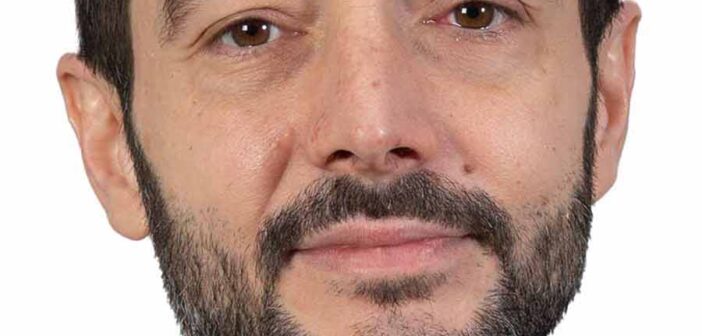
Six low cost airlines, including Ryanair, are to appeal a fine of €179m by Spain’s Consumer Rights Ministry for its baggage fees and practices which allegedly violate customer rights.
Ryanair, which was fined €108m, is to initiate an appeal citing that the fines are “unlawful” and politically motivated. Airliens have two months in which to appeal the decision.
The airline argues that its fee structure, which includes charges for larger carry-on luggage, is legally supported by past court rulings, and essential for offering low fares to consumers.
Ryanair was fined €108m, while IAG’s low-cost unit Vueling was fined €39m, EasyJet €29m, Norwegian €1.6m and Volotea €1.2m.
This decision confirms and increases the fines of €150m proposed in May. Spain’s Minister of Consumer Affairs Pablo Bustinduy rejected the airlines’ appeals against the fines: “This is the first time that sanctions classified as very serious have been issued in the field of consumer affairs, whose ministry acquired sanctioning powers in June 2022,”
Spanish airlines industry group ALA intends to appeal the decision, asserting that the fines undermine market competition and would adversely impact the travel costs forms of passengers.
Interntional aviation body IATA labelled the fine as an infringement on European law that restricts consumer choice.
It cited the importance of ancillary revenue for low-cost carriers, as it helps maintain affordable airfares and supports the tourism sector which significantly contributes to Spain’s GDP. A recent poll shows that a majority of Spanish travellers prefer low ticket prices with optional fees for additional services, indicating that consumer satisfaction is likely to decrease due to imposed regulations.
Ryanair CEO Michael O’Leary shared: “these fines have been invented by Spain’s Consumer Affairs Ministry for political reasons, and are clearly in breach of EU law. Ryanair has for many years used bag fees and airport check-in fees to change passenger behaviour and we pass on these cost savings in the form of lower fares to consumers.
“These illegal Spanish fines, which are based on an ancient 1960s law which predated Spain joining the EU, would destroy the ability of low cost airlines to pass on cost savings to consumers via lower fares.
“The success of Ryanair and other low fare airlines in Spain and across Europe in recent years is entirely due to Europe’s Open Skies regime and the freedom of airlines to set prices and policies without interference from national Governments which is what today’s illegal Spanish fines are,”
Willie Walsh, IATA’s Director General shared: “this is an appalling decision. Far from protecting the consumer interest, this is a slap in the face of travelers who want choice. Prohibiting all airlines from charging for cabin bags means that the cost will be automatically priced into all tickets. What’s next? Forcing all hotel guests to pay for breakfast? Or charging everyone to pay for the coat-check when they buy a concert ticket? EU Law protects pricing freedom for good reason. And airlines offer a range of service models from all-inclusive to basic transport. This move by the Spanish government is unlawful and must be stopped.”
The existence of different models – from full-service to ultra low cost – is a response to market demand and regulation is not needed in this area. Moreover, ancillary revenue is key for the LCC business model, which has reduced prices and widened access to air travel to lower-income groups.
This is not the first time that Spain has attempted similar misguided regulatory action and fines. In 2010 the Spanish government tried to impose similar fines and restrictions on airlines based on Article 97 of Spanish Law 48/1960—a law enacted when Spain was a fascist dictatorship. This was struck down by the EU Court of Justice based on an EU regulation which protects pricing freedom (Article 22 of Regulation No 1008/2008).
Having failed in its first attempt, this latest move is again trying to subvert pricing freedom by prioritising another Spanish Law (Article 47 of Spain’s General Law for the Defence of Consumers and Users) in conflict with principles of pricing freedom that are unequivocally enshrined in European law.
They failed once, and they will fail again. Consumers deserve better than this retrograde step which ignores the realities of today’s travelers. Spain’s tourism industry has grown to account for nearly 13pc of the country’s GDP, with 80pc of travelers arriving by air, and many of them budget conscious. Cheap air fares have played a huge role in growing this sector of the economy. The government has no competence—legal or practical—in eliminating the availability of basic airfares. The ECJ concluded this a decade ago. The EC needs to urgently step up and defend its laws which deliver benefits to consumers by protecting pricing freedom,” said Walsh.
Carrying cabin bags has a cost associated to it. This is primarily in lengthened boarding times, as a result of the time it takes for passengers to accommodate their baggage. Aircraft utilization is a key parameter of airline profitability, particularly on short-haul operations. Adding an extra 10-15 minutes on the ground to board each flight quickly reduces the number of flights and aircraft can do each day. “Everyone paying more for less choice is the worst possible outcome that a regulation could deliver,” said Walsh.
Consumers want choice and value for money. This law would remove both. Recent independent polling commissioned by IATA from Savanta of recent air travellers residing in Spain indicated that 97pc were satisfied with their last trip and confirmed the following preferences:
- 65pc prefer to pay the lowest price possible for their air ticket and pay extra for any additional services that are needed
- 66pc agreed that in general there is sufficient transparency on fees charged by airlines for various travel options
- 78pc said that air travel is good value for money
- 74pc said they feel well-informed about the products/services they are buying from airlines




